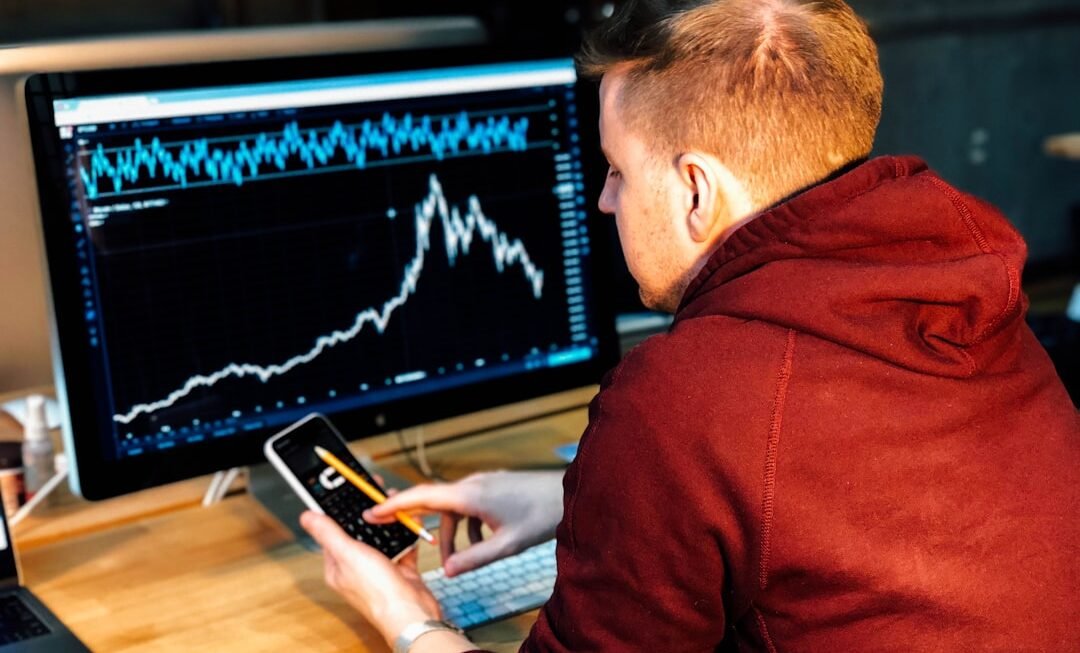Cryptocurrency trading presents both opportunities and risks for investors. The primary risk is market volatility, with cryptocurrency values capable of significant fluctuations in short periods due to factors like market demand, regulatory changes, and technological developments. This volatility can result in substantial gains or losses for traders.
The cryptocurrency market’s lack of regulation also increases susceptibility to manipulation and fraud, adding to the overall risk profile. Security concerns surrounding cryptocurrency exchanges pose another significant risk. Despite security measures implemented by many platforms, exchanges remain vulnerable to hacking and cyber attacks.
Several high-profile breaches have occurred in recent years, resulting in substantial losses of cryptocurrencies. The irreversible nature of cryptocurrency transactions further compounds this risk, as fraudulent or unauthorized transfers cannot be reversed once executed. Traders must be aware of these risks and implement appropriate safeguards to protect their investments.
Understanding the volatile nature of the market, the potential for security breaches, and the irreversibility of transactions is crucial for anyone considering cryptocurrency trading.
Choosing a Secure Cryptocurrency Exchange
Security Measures
Look for exchanges that implement robust security protocols such as encryption, two-factor authentication, and cold storage for funds. These measures can help protect your digital assets from potential threats.
Regulatory Compliance and Reputation
Ensure that the exchange complies with relevant regulations and has a good track record of adhering to industry standards. Research the exchange’s history, user reviews, and any past security incidents to get a sense of its reputation.
Additional Protections
A reputable exchange will have a strong track record of security and customer satisfaction. It is also advisable to use exchanges that have insurance coverage for digital assets, providing an extra layer of protection for traders. By carefully selecting a secure cryptocurrency exchange, traders can mitigate the risks associated with trading in the volatile cryptocurrency market.
Implementing Strong Passwords and Two-Factor Authentication
Implementing strong passwords and two-factor authentication (2FA) is essential for securing your cryptocurrency holdings. Strong passwords should be complex and unique, incorporating a combination of letters, numbers, and special characters. Avoid using easily guessable information such as birthdates or common words.
Additionally, consider using a password manager to generate and store strong passwords securely. Two-factor authentication adds an extra layer of security by requiring a second form of verification, such as a code sent to your mobile device, in addition to your password. This significantly reduces the risk of unauthorized access to your accounts, even if your password is compromised.
Many cryptocurrency exchanges and wallets offer 2FA as an option, and it is highly recommended to enable this feature to protect your assets from unauthorized access.
Using Cold Storage for Long-Term Holdings
For long-term cryptocurrency holdings, using cold storage is a highly secure option. Cold storage refers to keeping your cryptocurrencies offline, away from internet-connected devices, which significantly reduces the risk of hacking and unauthorized access. Common forms of cold storage include hardware wallets, paper wallets, and offline computer storage.
Hardware wallets are physical devices that store your private keys offline, providing a high level of security against hacking and malware. Paper wallets involve printing your private keys and public addresses on paper and storing them in a secure location. Offline computer storage entails creating an offline wallet on a computer that has never been connected to the internet.
By utilizing cold storage methods for long-term holdings, traders can minimize the risk of theft and unauthorized access to their cryptocurrencies.
Keeping Software and Hardware Updated
Keeping your software and hardware updated is crucial for maintaining the security of your cryptocurrency holdings. Software updates often include security patches that address vulnerabilities and protect against potential threats. Ensure that you regularly update the operating systems of your computers and mobile devices, as well as the software of your cryptocurrency wallets and exchanges.
Similarly, keeping hardware devices such as computers and mobile phones updated is important for maintaining their security integrity. Outdated hardware may be more susceptible to malware and hacking attempts. By staying current with software and hardware updates, traders can enhance the security of their cryptocurrency assets and reduce the risk of unauthorized access.
Being Cautious of Phishing Scams and Fraudulent Websites
Cryptocurrency traders are constantly at risk of falling prey to phishing scams and fraudulent websites. These malicious activities can result in the loss of sensitive information, financial losses, and even identity theft.
What are Phishing Scams?
Phishing scams involve fraudulent attempts to obtain sensitive information such as login credentials, private keys, or personal data by posing as a legitimate entity. Scammers use various tactics to deceive unsuspecting individuals, including fake emails, websites, and social media messages that appear authentic.
How to Protect Yourself
To avoid falling victim to phishing scams, it is crucial to exercise caution when clicking on links or providing personal information online. Be wary of unsolicited communications and always verify the authenticity of websites before entering sensitive information. Look for secure website indicators such as HTTPS encryption and double-check web addresses for accuracy.
Stay Safe in the Cryptocurrency Market
By being cautious of phishing scams and fraudulent websites, traders can significantly reduce the risk of falling victim to malicious activities in the cryptocurrency market. Remember, vigilance is key to protecting your sensitive information and financial assets.
Seeking Professional Advice and Staying Informed about Security Measures
Seeking professional advice and staying informed about security measures is crucial for navigating the risks associated with cryptocurrency trading. Consider consulting with cybersecurity experts or financial advisors who specialize in cryptocurrency investments. They can provide valuable insights and guidance on best practices for securing your digital assets.
Additionally, staying informed about security measures through reputable sources such as industry publications, cybersecurity blogs, and official announcements from exchanges and wallet providers can help you stay ahead of potential threats. By staying informed about the latest security developments and best practices, traders can proactively protect their investments and minimize the risks associated with cryptocurrency trading. In conclusion, understanding the risks of cryptocurrency trading is essential for safeguarding your investments in this volatile market.
By choosing a secure cryptocurrency exchange, implementing strong passwords and two-factor authentication, using cold storage for long-term holdings, keeping software and hardware updated, being cautious of phishing scams and fraudulent websites, seeking professional advice, and staying informed about security measures, traders can mitigate the risks associated with cryptocurrency trading and enhance the security of their digital assets. With careful consideration and proactive measures, traders can navigate the challenges of cryptocurrency trading with confidence and peace of mind.












